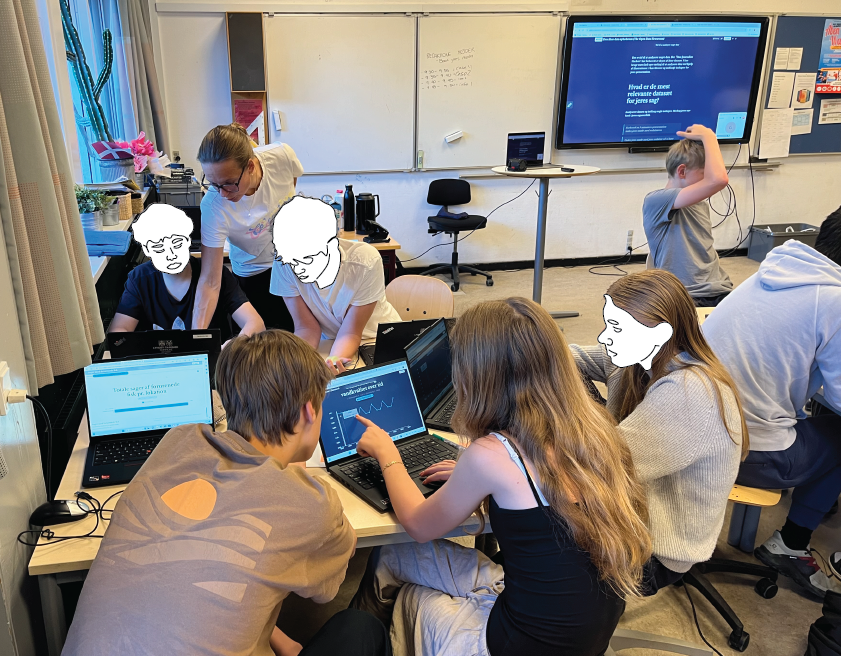My research on “Open Data usage in elementary schools” has taken an extraordinary path through the iterative development of a game where students play the role of data journalists. In this game, students solve a mystery related to incidents occurring in their city by analysing Open Data on water quality to uncover a company’s environmental damage case. With a design-based research approach, I have been iteratively developing this learning experience with teachers and students in Danish schools.

Emilie and her 7th-grade class recently participated in one of the latest interventions. This time, Emilie fully engaged in the game, playing a crucial role. She is excited to share her experience with the ODECO community:
Emilie’s Experience
On Wednesday, 29th May, my 7th-grade class and I had the opportunity to participate in an intervention aimed at better understanding how to teach and learn competencies for Open Data, while also giving my students hands-on experience in collecting and using it. Specifically, my students engaged with critically evaluating the open data and using it to solve a local mystery.
The day began with an introduction to their roles as open data journalists, working from the data to present a possible solution to the mystery at a final press conference. I played the role of editor-in-chief. My primary function was to present the four mysteries to the data journalists and introduce them to relevant data. Additionally, I reminded the data journalists to critically assess the data they received and to present their findings in a way that the average citizen could understand. Another key task in my role as editor-in-chief was to ensure that the students argued why their solution to the mystery was plausible based on the provided open data.

Overall, my role as editor-in-chief was not much different from my daily role as a mathematics teacher. As a teacher, it is my job to set the framework for instruction that aims for students to develop competencies enabling them to assess and critically engage with mathematical models based on, for example, open data. Improving students’ abilities to use open data to solve problems is highly relevant for primary education. Not only is it an indispensable skill in today’s society, but it also relates to subjects like mathematics. Here, students need to develop competencies and acquire skills and knowledge to effectively navigate mathematics-related situations in their current and future lives. Mathematical models based on open data are something students encounter in their societal life.


Shortly after the intervention, my students encountered a recent study from DR (Denmark’s Radio) in a mathematics lesson, which dealt with the risk of dying prematurely. The study became the basis for an academic discussion about what open data set might underlie the results, how the results were obtained, and what the study could not reveal. During the discussion, it became clear to me that the students had become more knowledgeable about what open data is and how it can be used after the intervention.
Emilie Nehammer (Danish 7th-grade school teacher)
Design-based research allows us to have practical and theoretical outcomes while developing iterative cycles aimed at achieving the best educational design. The participation of teachers and students in school interventions is crucial. And as an ESR, it is an invaluable experience. Thanks to Emilie, the whole class, and all the teachers and students who have been part of my studies.
Author: Alejandra Celis Vargas
Aalborg University Copenhagen, Denmark


